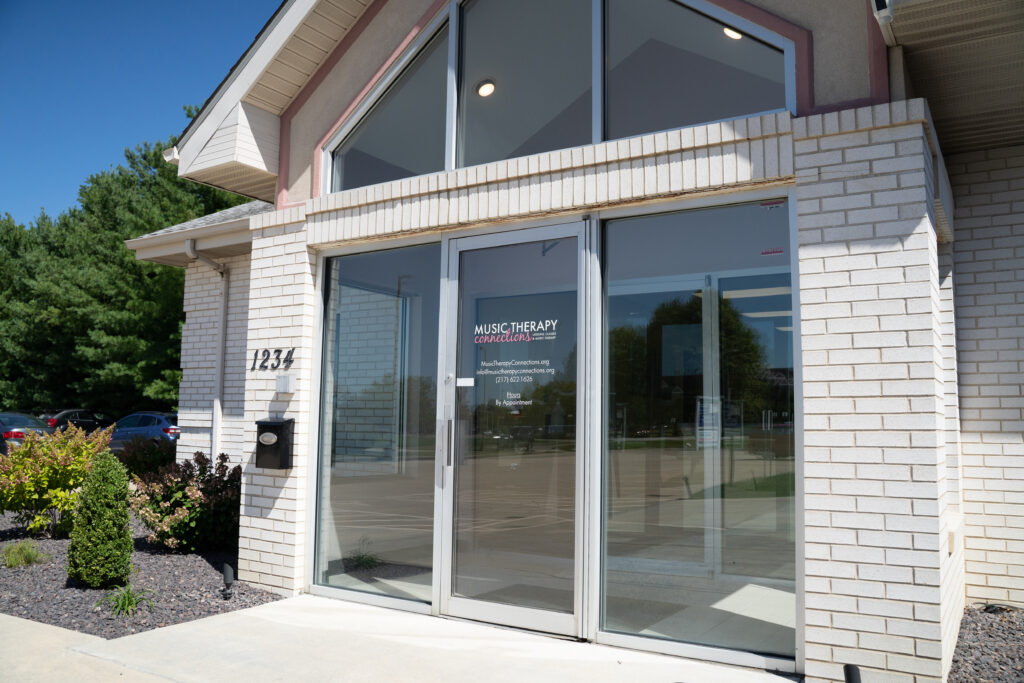
This month, Music Therapy Connections made another addition to our weekly services! Rachel Rambach is heading up the launch of a new music therapy group for older adults. I wanted to interview Rachel and share with you how we approach music therapy for older adults.
Alisabeth: Rachel, thank you so much for taking the time to do this interview. I am really excited to share with everyone the great work you’re doing!
Rachel: It’s my pleasure! I’m really excited about this new avenue of services, especially since it was seeing first-hand the effect music had on my grandmother that led me to music therapy. She was diagnosed with early onset Alzheimer’s Disease when I was in middle school, and as the disease continued to progress, I saw that she was still able to enjoy and communicate through music. One of my last memories with her is singing Christmas carols together at her nursing home.
A: What does music therapy with older adults look like?
R: My new group takes place in the memory care unit of a large senior living facility. There are about 15 residents on the unit, and the group varies in size each week depending on how many residents feel up to coming. The group is held in a really nice common area with a piano, comfy chairs, and couches.
I start with a welcome song, and then sing a variety of tunes both with and without my guitar. I also bring movement props like scarves and small percussion instruments like hand drums and shakers. I reserve the last 15 minutes or so for singing and playing the piano, since the residents really enjoy that. We end with a goodbye song, and then I usually stay for a few minutes to chat with everyone before I leave.
A: What kind of music do you use with older adults?
R: This is the fun part! Since I’ve worked primarily with kids up until now, it’s been a new adventure building up my repertoire of songs for older adults. I’ve compiled a variety of traditional folk songs, spirituals, hymns, musical numbers, older country music, and popular songs from every decade all the way back to the 20s. Some of the residents have also made song requests during our sessions, so I make sure to jot those down and prepare them for the following week.
A: What goals would a music therapist work toward with older adults?
R: Since this is such a new group, right now I’m working on building rapport with the residents and establishing group cohesion. My immediate goals are engagement through singing, facial expression, and body language, and as we continue our work together, I would like to increase verbal communication, encourage gross motor movement, and focus on reminiscence as well.
A: Why does music therapy work for older adults?
R: It really is magical to see an older adult, especially one suffering from memory loss or dementia, connect with a song that has meaning for him or her. Music affects and stimulates the brain in a way that speech alone does not, which is why it can be such a powerful form of communication and therapy for an older adult. The stimulation brought about by music can lead to conversations, surfaced memories, and expression that would not otherwise occur.
A: What would you say to someone who is thinking about music therapy services for an older adult in their life?
R: I would answer first as someone who has seen the powerful effects of music therapy on an older adult family member: it’s an opportunity not only to work on the goals I mentioned above, but to bring added joy into your loved one’s life. On the surface, music therapy can look or seem like a form of entertainment, but the benefits are far-reaching.
Thank you Rachel, for answering some questions today. I am so excited to see this new program grow!
If you or someone you know would be a good candidate for music therapy you can register them for services below! If you have questions email us at info@musictherapyconnections.org!



